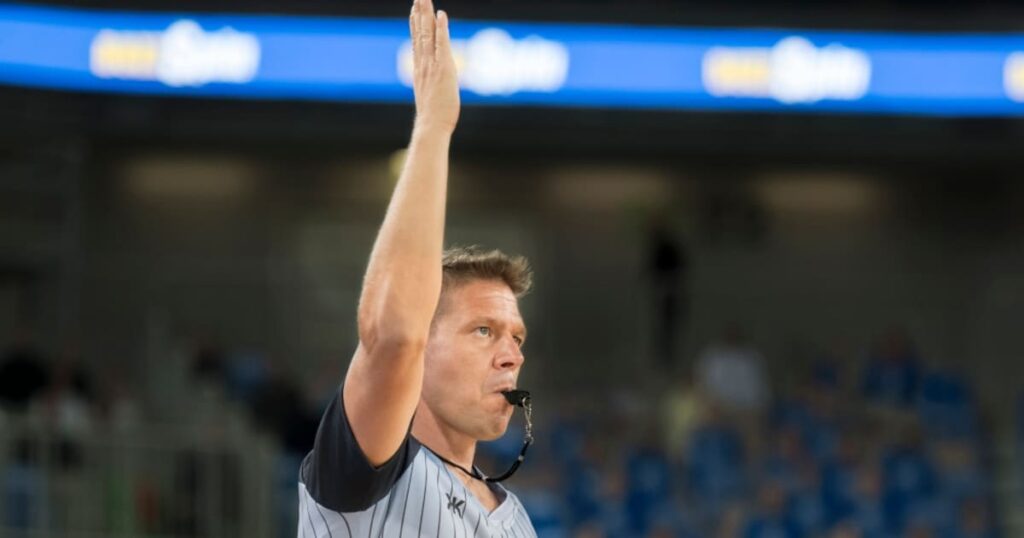 (AGENPARL) - Roma, 29 Giugno 2022
(AGENPARL) - Roma, 29 Giugno 2022(AGENPARL) – MIAMI mer 29 giugno 2022

There is a minute and 33 seconds left in the game. Player number 30 from the home team charges down the court intent on blocking a shot. The official nearest the action zeroes in, knowing a collision is likely.
In seconds, a whistle cuts through the action. The official turns to the benches and says, “defensive foul, number 30.” An angry fan yells from the stands. The offending player argues the call from the court. The arena echoes with disgruntled fans as they watch the replay on the jumbotron. The seasoned official is confident in the call, but the raw emotions from the moment will likely affect his actions for the remainder of the game.
Jason Kostrna, FIU kinesiology researcher, knows sports officials are not immune to their own emotions. Previous models evaluating referee decision-making did not factor the role emotions or anticipation play, so Kostrna developed the Expanded Sport Official’s Decision-Making Model to do just that. In his latest research, he has shown sports officials are just as susceptible to emotions as everyone else, no matter their training or level of experience. Emotions, Kostrna said, influence perception, information processing and even anticipation.
Anticipation in officiating is a complex topic, he said. A common refrain in officiating is, “see what you call and call only what you see.” Anticipating calls can be the cause of a wrong call.
“Take the NBA playoffs for an example, a common block/charge situation can appear to be heading towards a charging foul when at the last split second the charging offensive player steps around the defense and avoids an offensive foul,” Kostrna said. With the mindset of anticipation, the call would have been made regardless.
However, what this research shows is experienced officials can anticipate what will occur based on years of experience. They use anticipation to direct their attention to key areas of the play and make a correct decision that more junior officials would likely call incorrectly. The study demonstrated the ability of officials to make accurate decisions relies heavily on their ability to know where to look and their previous knowledge of similar situations.
Along with these findings, additional research can be conducted to integrate the results into the training and processes of sports officials. Even with technology being increasingly used in officiating, Kostrna said there is still significant value in human decision-making.
This research was published in the International Journal of Sport and Exercise Psychology.
Fonte/Source: https://news.fiu.edu/2022/refs-have-feelings-too?utm_source=main&utm_medium=feed&utm_campaign=newsroom-referrals&utm_term=homepage

